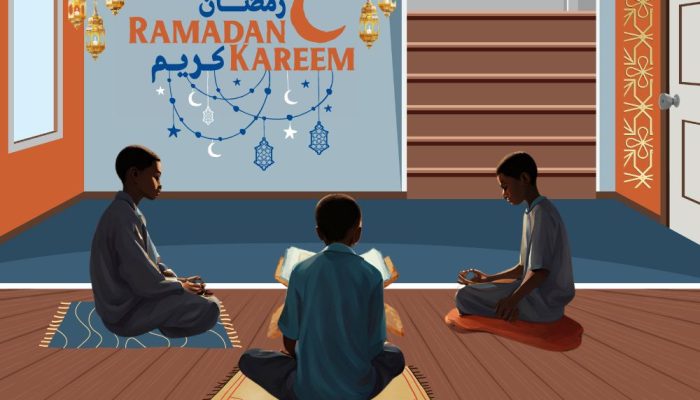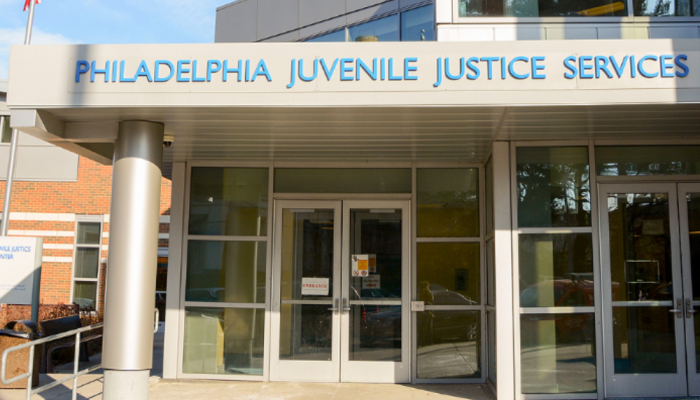Being away from family during the holidays can be difficult, and it can be particularly difficult for youth who are in congregate care. For many, the holiday period is associated with fond memories of being with loved ones. Some youth who are in congregate care settings or other out-of-home placements may mourn not being able to create more memories with their families this year. For others, the holidays may elicit memories of specific traumas they have experienced, or act as a reminder that they have not had the opportunity to create those special holiday memories in the past. Alliance Healthcare Foundation wrote a blog post about supporting youth in foster care with these varied and difficulty feelings around the holidays. They quoted Sarah Pauter, a former foster youth and current CEO of Phenomenal Families, a non-profit working with young people who have experienced the child welfare and/or the juvenile justice system, and are now working to break the cycle of generational trauma for their own children. In the blog post, Pauter stated, “The holidays are an extremely tough time for current/former children and youth in foster care…Many organizations, particularly residential treatment centers and group homes, tend to see a spike in critical incidents (e.g., fighting, running away, etc.) this time of year since emotions are so high.”
A quick internet search for supportive options for youth in congregate care during the holidays yields a number of resources and suggestions for foster families to reference. However, there are few recommendations specific for staff in congregate care facilities, such as child welfare group homes, psychiatric residential treatment facilities, and juvenile justice placements.
Some states have taken steps to improve this time for youth in congregate care. For example, in Oklahoma, state law has set up the “Santa Claus Commission” which authorizes the state to provide and/or purchase a gift for every child in the care of the state, including juvenile justice placements, group homes, foster homes, and other state licensed childcare institutions.
While this step may provide youth with a small piece of holiday spirit, it often doesn’t provide enough support. In an article for the West Viriginia Gazette, Rachel Kinder, a program director at Mission West Virginia, described a concern from a colleague who oversees group homes: “Groups provide for Christmas dinner, fulfill children’s wish lists and host holiday events and activities. However, she noted that even with holiday celebrations, personal gifts and staff who genuinely care about the kids, it can’t compare to living with and celebrating as part of a family.” To this point, Pauter (mentioned above), said:
I’ll never forget Christmas when I was 6 or 7 years old and my mother was incarcerated. Some agency came over and brought me a Barbie and a set of doll clothes. The gesture was incredibly kind and I appreciated the gift, but it couldn’t possibly make up for the fact that my mother was in prison hundreds of miles away. I don’t think there is any gift you could give a kid to make up for that.”
With all of this in mind, it is essential that we come up with ways to support youth in congregate care settings in more substantial ways that recognize the trauma and difficult emotions that the holiday period can bring up for youth. While toy drives and holiday parties may provide youth with moments of holiday spirit, they do little to acknowledge the experience of being away from family during the holidays or address the harm that youth may have previously experienced at this time of year.
In practice, the priority should be for youths to spend the holidays at home with family. A youth advocate from Juvenile Law Center’s (JLC) youth advocacy program, Alexandria Rivera (she/her), said “My family may not be blood relatives or may not have money to fill the table up on thanksgiving or fill the bottom of the Christmas tree up with 20+ gifts but we have each other! That gift to go home is better than any object.” With this in mind, the holiday season provides an excellent opportunity for stakeholders to revisit cases and determine if youth can be placed back in their homes. Former Chair of the Illinois Juvenile Justice Commission, Judge George W. Timberlake (ret.), wrote about youth detention during the holiday season and stated “Holidays are an important time for families to be together, and no doubt nearly everyone in our country’s juvenile justice systems — from judges to jailers — tries to minimize the number of children behind bars during the holidays. But holiday or not, that should be our goal 365 days a year.”v Echoing this sentiment, another JLC youth advocate, Sway Hill (she/her), said “I would have wanted to spend time with my birth family and they would have wanted me there as well. I didn’t know how to advocate for myself and no one advocated for me.” Sway’s experience not only indicates a youth’s desire to be at home with their family, but also points to a need for stakeholder advocacy and action to make this happen in all cases where it is possible.
Another option for youth to spend the holidays at home is to provide them with day/weekend passes to be with their families. This is best practice for young people and families who wish to spend the holidays together when it is safe for them to do so. The JLC youth advocate quoted above, Alexandria Rivera, described how not receiving a home pass made her feel looked down on by, stating “I had family I couldn’t see because the workers didn’t feel like I was good enough to receive a home pass or weekend pass. I feel like maybe if these grown adults were less bitter/ miserable my holidays would have been better.” Of course, it may not always be possible to provide youths with home passes, but young people who do not receive one should have time to process this with staff so that they do not feel like it is their fault that they cannot be with their families. Additionally, when a home pass is not possible, agencies and facilities can work to ensure that siblings in different placements can see each other on the holidays.
For youth and families for whom day/weekend passes are not possible, state and local agencies should prioritize funds for transportation to ensure that families are able to visit their children in placement on holidays. Often, placement facilities are not accessible by public transportation and even when they are, public transit is typically limited due to holiday scheduling. This should be coupled with an additional recommendation that facilities prioritize hosting programming for youth and families to come together during the holidays.
For those youth that cannot receive day passes to visit their families and do not have any family visiting on a holiday, facility staff may support the youth in other ways. Young people may appreciate a time to discuss their feelings around the holiday season. This may also be a good time for staff to inquire if youth have any traditions that they normally do with their family that they would like to continue in placement. It should be noted that some youth may not feel comfortable continuing their traditions with people outside of their family, but staff can support youth by creating a space for them to share those feelings and think about ways a young person may want to do something else that feels special to them inside the facility. Oftentimes, the assumption is that holiday parties, special meals, and gifts at the holiday season will make youth feel cared for and seen, when they may simply want a safe place and person to talk to. Further, youth often lose a sense of independence and autonomy over their own lives when they are in placement, so staff should attempt to make youth should feel empowered to make decisions regarding how they want to celebrate any holidays. To this point, an article examining risk factors of youth in residential treatment during the holidays cautions facilities against enforced togetherness, noting that the holidays often emphasize coming together, but that youth in placement should not be forced to participate in any celebrations as this may cause or increase tension and lead to behavioral incidents.
In addition to the above recommendations, facilities should check in with youth throughout the year regarding what holidays they do or do not celebrate so that each young person’s diverse experience is honored in a way that addresses their individual wants and needs. Facilities can honor youth’s cultural, religious, and personal values through simple things such as keeping a calendar of important holidays and events for each youth so that staff can engage with them in meaningful ways around those events. Ongoing conversations can provide space for youth to inform staff of any important upcoming dates that they would like to celebrate or recognize in some way.
The Office of the Youth Ombudsperson hopes that we can support youth, families, and facilities in making the holiday season meaningful even when youth are in placement. Further, some of the youth rights that the OYO is charged with protecting include youth being able to practice their religious or personal beliefs, which may be especially important for youth during the holiday season. As such, we hope that youth and families feel comfortable bringing any rights violations to our attention and we also hope that facilities and city agencies engage and partner with us to ensure that youth rights are upheld and honored during the holidays and at all times of the year.




